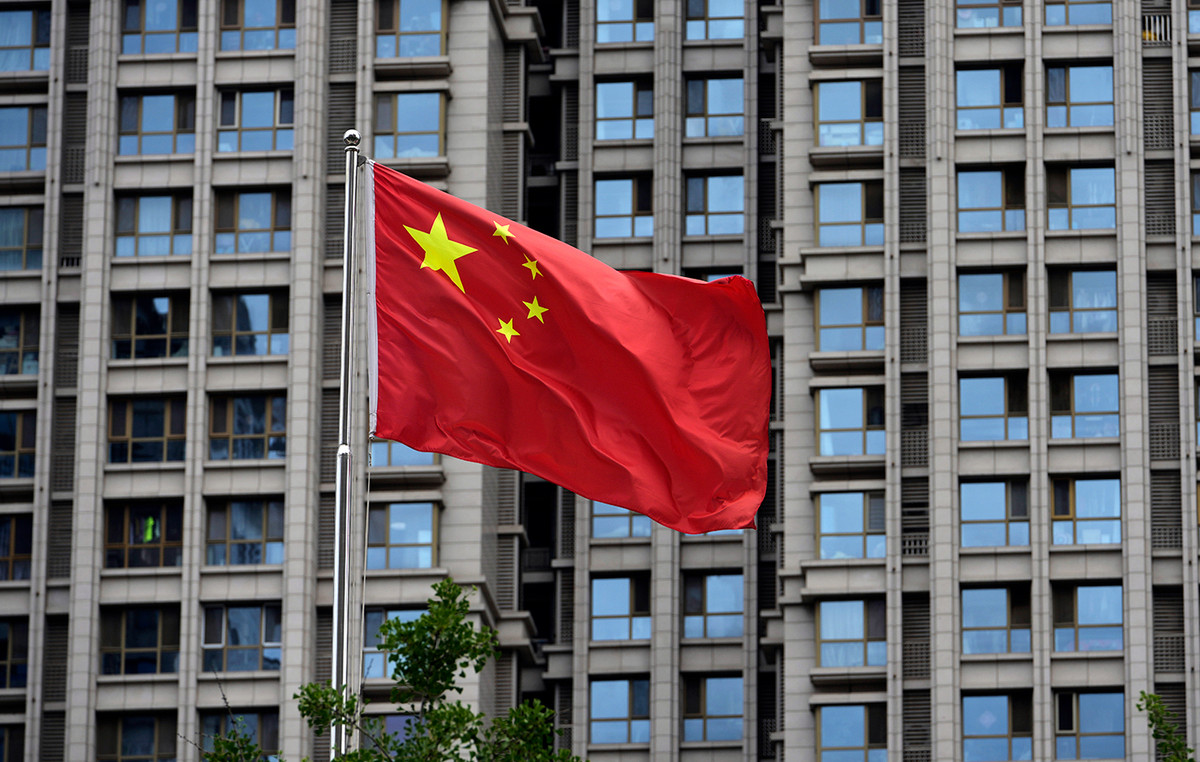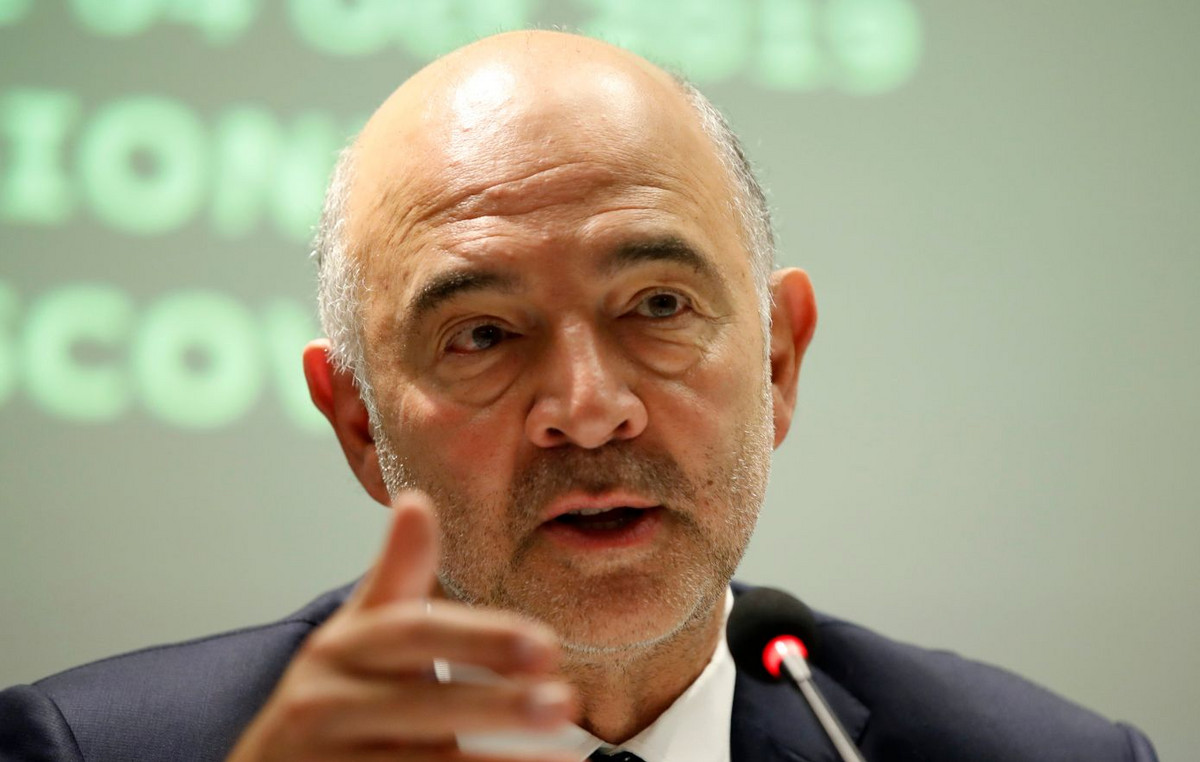Responsible for the country’s monetary policy, one of the duties of the central bank is to guarantee the purchasing power of the national currency, the real and the municipality has some tools for that.
Specialists consulted by CNN Brasil Business however, point out that the organization could be doing more to deal with the recent upward trend in the dollar which has been accompanied by strong market volatility.
The rise, with the dollar going from BRL 4.62 to BRL 5 in six days, is part of a global phenomenon, linked to an aversion to risk on the part of investors and changes in investment flows according to U.S advance in your high interest cycle .
Going against this trend, say experts, is practically impossible, but disagreements are beginning to emerge as to how far the Central Bank could act to at least make the process smoother.
Instruments
André Modenesi, professor at UFRJ and coordinator of the Central Bank Observatory, explains that the municipality has three main tools to intervene in the exchange rate.
The first, and most powerful, is the basic interest rate, the Selic rate . When it is high, interest on bonds from the Treasure become more attractive, strengthening an inflow of foreign capital, in dollars, which increases the supply of US currency and increases the value of the real.
The rise in the Selic rate from 2% to 12.75% in just over a year was one of the major factors behind the strong appreciation of the real in the first quarter of 2022, when the dollar fell from R$5.71 to the lowest level. of BRL 4.59.
“The Brazilian economy is not heated up, interest rates are not rising to cool down, although this will happen, the upward process is more linked to this exchange mechanism, maintaining a high difference in domestic and external interest rates”, he says.
In addition to the Selic, the Central Bank can intervene in the so-called foreign exchange market, which is divided into the spot and futures segment. In both cases, the idea is to increase or reduce the amount of dollars in circulation to influence the exchange .
In the spot market, the Central Bank sells, buys or makes dollar loans from the international reserves that Brazil has. In the futures market, the negotiation is done in contracts, through the so-called exchange rate swap.
“The exchange swap is an exchange, the BC promises to pay the buyer the exchange variation between a certain period. It is the variation plus a rate, and receives the Selic variation from the buyer in the same period. It is an exchange, receives Brazilian interest and commits to pay the variation”, says Alexandre Schwartsman, specialist CNN in economics.
What is the efficiency of operating in the foreign exchange market?
If changes in the Selic have a strong influence on the dollar exchange rate, in the case of interventions in the exchange market the effects are smaller.
Schwartsman, who was director of international affairs at the Central Bank, assesses that, in general, purchases, sales and loans “work in a short space of time, it goes from hours to days, but it never happened for weeks or a month. It only interferes even if the interest rate rises a lot”.
He states that it is also important for the Central Bank to carry out diagnostics to understand where there is a shortage of the dollar, and which is the most appropriate operation to compensate for it and help the real.
“At times, you may feel that there is no dollar in sight, then the best way is to sell. In some there is no shortage of dollars, companies that are looking to buy dollars to protect themselves, then the swap is favorable”, she says.
André Modenesi considers that, as the international reservations are finite and low levels are often frowned upon by investors, operating in the futures market is usually more efficient, as it does not involve loss of reserve.
Reserves, according to Schwartsman, are important for moments of interruption in the flow of the dollar, such as possible crises, acting as a reserve.
“If you don’t have a dollar for everything, you can’t pay imports, debt in dollars. In order not to be dependent on these sudden stop possibilities, as a rule, many emerging countries have started to accumulate reserves to avoid this type of problem, the discussion is always how much”.
According to him, the discussion of the ideal level of reserves is constant, but without resolution, and ends up influencing Central Bank decisions such as whether or not to sell on the spot market. “There is never a clear answer,” he points out.
Current performance
Sérgio Machado, manager of the Trópico Cash fund, considers that the Central Bank should not act at the moment to reverse the upward trend of the dollar, but to reduce excessive volatility, which he attributes to “extremely speculative behavior in the market”.
Machado assesses that, during the pandemic, the inflow of foreign capital suffered a sharp reduction, and even with the recovery of the economy, it is still far from pre-pandemic levels, which “does not allow the Central Bank to turn its back” .
“If there is a lack of money, it sells, why let the price, which is fundamental to the economy, suffer such a large variation because of a flow?” question. For the manager, the lack of liquidity makes it easier for a single market agent to influence the exchange depending on its movements.
In this sense, Machado sees a mistake on the part of the Central Bank, which has failed to avoid “excessive, unnecessary variations due to pure speculation”.
“It’s a small and volatile market, you have to avoid that and prevent flows from affecting the currency excessively.”
Machado says that, in the first quarter, the dollar’s fall occurred over three months, with massive inflows of foreign capital, that is, there was a reason for the retreat, and even so there were moments when the BC could have acted to avoid disproportionate drops.
Now, he assesses that there were episodes of highs in the dollar for no apparent reason other than a “bad mood feedback” in the market, due to the fragile moment worldwide.
“If you allow these detachments, you can pay a greater sin than you should. We had a devaluation of almost 10%, half came back and the world started to catch fire. If you get weakened in a situation like this, a price correction scenario, it’s easier to get hurt”.
For him, “sometimes in the BC there is excessive orthodoxy, a concern about not being taxed as someone who is not influencing the currency level, and then it is absent. He is so afraid of making mistakes that he makes mistakes by omission. I’d rather make a mistake by action than by omission, because you can correct it”.
The performance leaves something to be desired, but it is to be expected that we will have more volatility ahead, eventually a more efficient Central Bank would be good for everyone
Sérgio Machado, manager of the Trópico Cash fund
André Modenesi also assesses that the Central Bank could be carrying out more auctions and with higher values, in order to reduce volatility, which also results in inflationary pressures.
For him, this may not be happening because the autarchy “sees that it is a more lasting trend due to the high interest rates at the Fed. A heavier act should only be done after it becomes clearer where the Fed is going, and the fear is that Powell [presidente do Federal Reserve ] become a new Volcker, which gave the interest rate shock in the 1980s”.
Alexandre Schwartsman says that the Central Bank could even try to moderate variations through auctions, but that there is not much that can be done with these tools in the current scenario.
“The dollar is at the strongest level in the world since 2002. The best moment for the real was in the first half of April. It’s a global movement, so it’s natural that I go up here”, he says.
“My view is that you can intervene, but you will lose, because there is a train coming in front of you, which is the dollar passing over all currencies due to the rise in interest rates in the United States due to inflation”.
The economist considers that the complaints in the market about the autarchy’s performance are natural in moments of a high dollar and a fall in the handbag .
“The Brazilian market knows how to sell dollars and buy stocks, they make money when stocks go up, the dollar gets cheap and interest falls. When interest rises, the dollar rises and the stock market falls, they will blame the Central Bank. They don’t know how to buy dollars because it’s expensive, they have to give up the Selic, nobody goes long in dollars, goes short, and when the dollar goes up, they lose money and complain”.
When contacted, the Central Bank replied that it would not comment.
Source: CNN Brasil
I am Sophia william, author of World Stock Market. I have a degree in journalism from the University of Missouri and I have worked as a reporter for several news websites. I have a passion for writing and informing people about the latest news and events happening in the world. I strive to be accurate and unbiased in my reporting, and I hope to provide readers with valuable information that they can use to make informed decisions.







